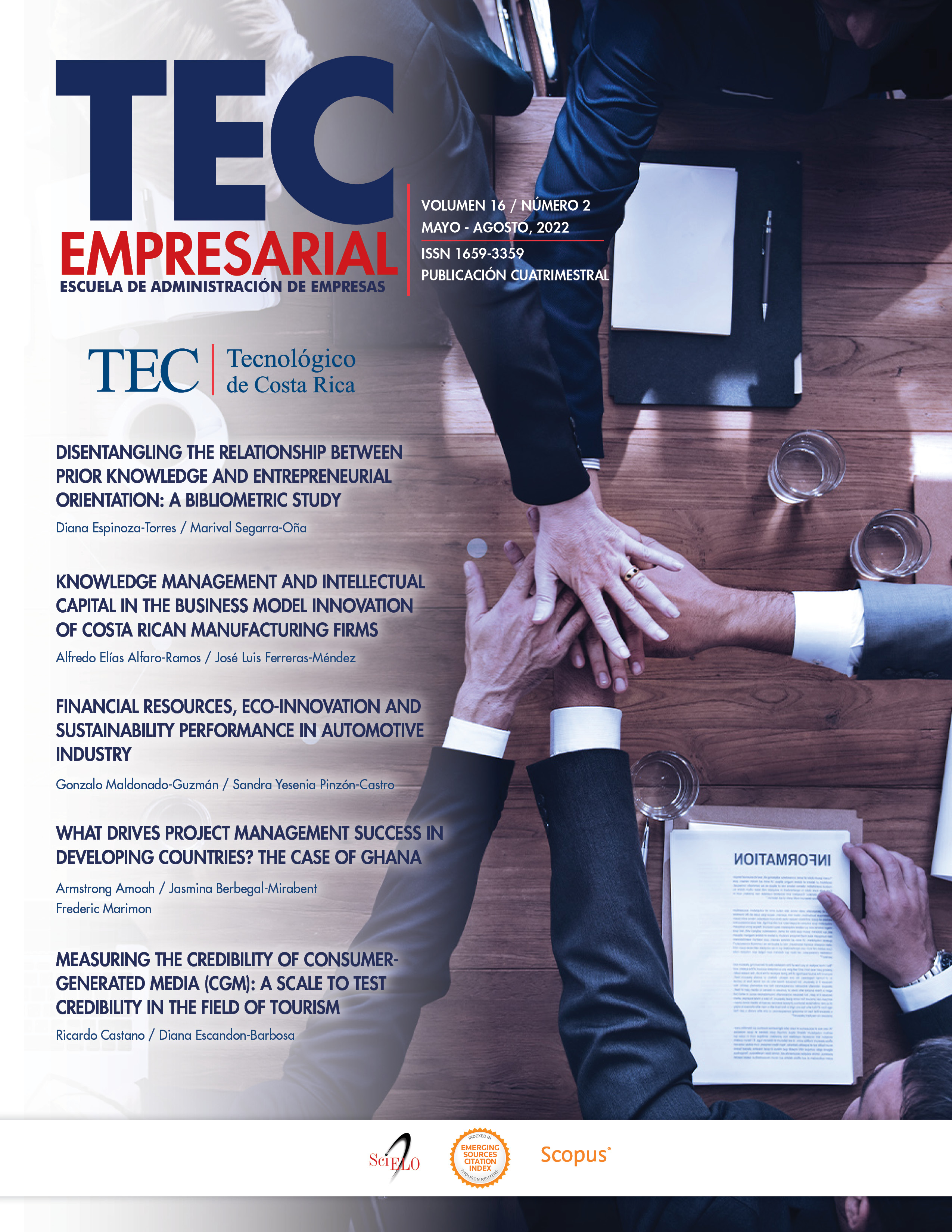What drives project management success in developing countries? The case of Ghana
Main Article Content
Abstract
Many projects in developing countries (DCs) have been recognised as crucial forces for poverty reduction and making people’s lives easier. Despite their relevance, projects in these countries typically fail or are abandoned before completion. Recent calls suggest that projects in DCs are multifaceted, interdependent and of a complex nature; consequently, they are influenced by various factors that are specific to these territories, requiring new research efforts that delve deeper into the particularities of this specific setting. Literature on project management success (PMS) in DCs is very limited, and the existing attempts either rely on PMS factors for developed countries and/or use conventional variable-oriented analyses that are not transferrable to the context of DCs. Aiming to shed new light on the factors that shape PMS in DCs, this study examines both the configurational and the independent influence of three factors that have been emphasised in PM literature as determinants of PMS. To achieve this objective, a survey was conducted among 215 project manager practitioners in Ghana. First, we validate the factors’ structure obtained from literature. Next, we examine the configurational influence of these factors on PMS in DCs, complementing the findings with robustness checks. Our results support the existence of distinct pathways, suggesting that there is no unique recipe, but different strategies that can be followed. The study concludes with a series of recommendations that are expected to help engineers and project managers in DCs understand and deal with project management challenges.
Article Details
The digital version of the journal is registered under the BY-NC-ND 4.0 Creative Commons license. Therefore, this work may be copy and redistribute the material in any medium or format, as long as you give appropriate credit, provide a link to the license, and indicate if changes were made. You may do so in any reasonable manner, but not in any way that suggests the licensor endorses you or your use.
The authors keep the copyright and give the journal the right of the first publication and the possibility of editing, reproducing, distributing, exhibiting and communicating in the country and abroad through printed and electronic means. On the other hand, the author declares to assume the commitment on any litigation or claim related to the rights of intellectual property, exonerating of responsibility to the Business School of the Costa Rica Institute of Technology.


